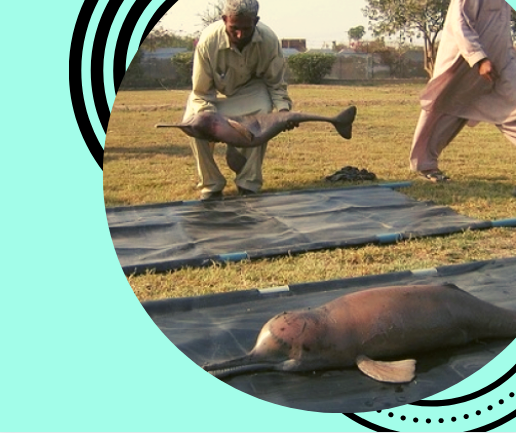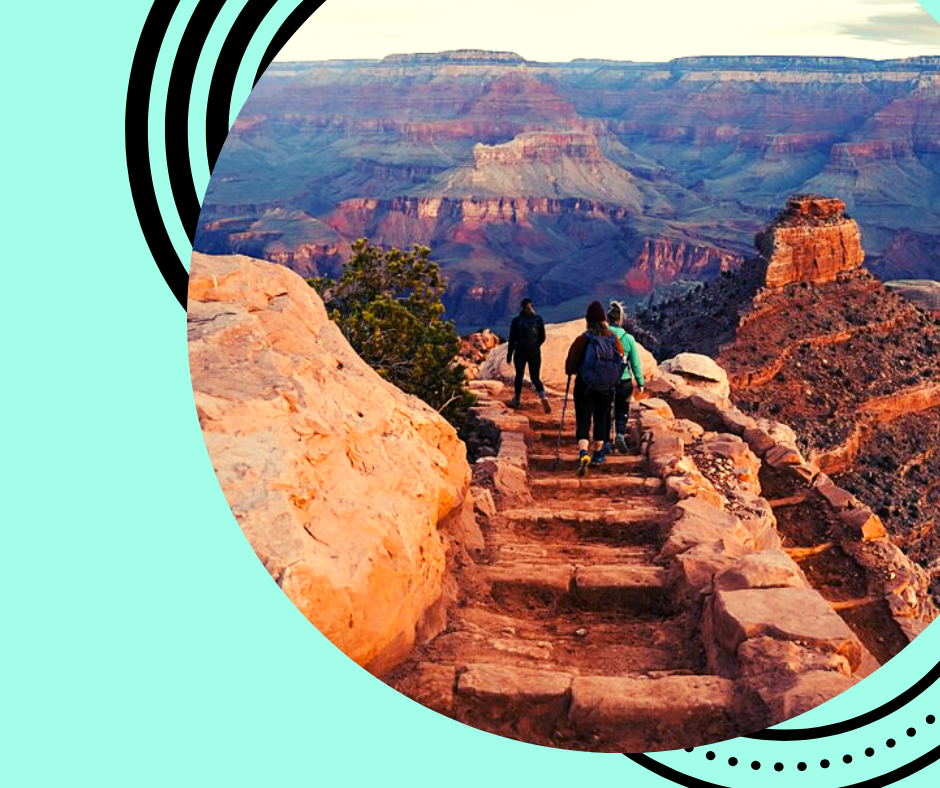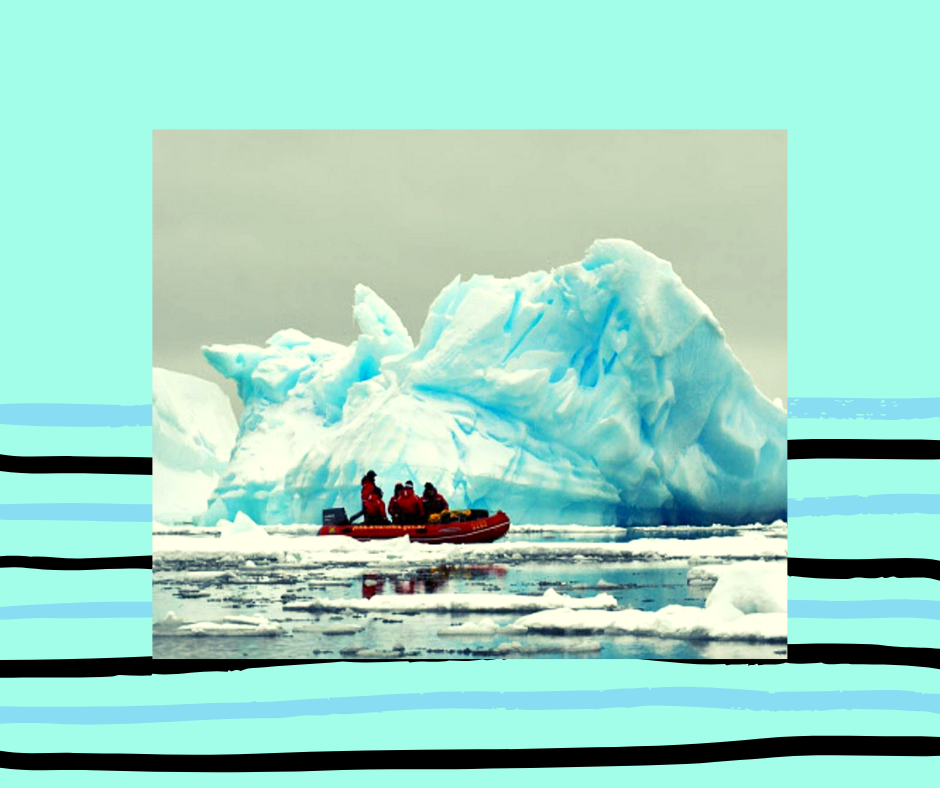From pandemics to protests, UFOs to potential World Wars —the year 2020 has kept the news media busy. Inevitably, some extremely important news concerning the environment has drowned in all the chaos.
Of course, when there’s a life-threatening disease on the loose, all other matters appear to be insignificant. But just because our attention was elsewhere doesn’t mean that climate change was taking a break.
Many important developments took place on the environmental front, some of which are worth celebrating while others are alarming, to say the least.
Important Environment You Have Missed
With COVID-19 dominating the news cycle in the past few months, some key news about climate change has gone under the radar. While the overall picture is bleak, some new stories are inspiring hope.
Here is everything good, bad and ugly that happened while the pandemic was keeping you occupied.
The Good
1. Rare Dolphins Rebounding in Indus River

Indus River Dolphins are endangered river dolphins that are indigenous to the main channels of Indus River in Pakistan. Construction of diversion dams in this river has damaged the natural habitat of these mammals.
These dams or “barrages” were constructed around the mid-20th century to reduce the risk of flooding and provide irrigation. Inadvertently, they affected the dolphins’ migration routes and have also caused dangerously low water levels. In recent years, untreated industrial waste has also threatened the Indus River dolphins.
However, National Geographic reports that these dolphins are rebounding in Indus Rivers as a result of a government conservation program. The local authorities have educated local communities to organize rescue efforts of the stranded dolphins and as a result, their numbers are increasing.
The latest survey by WWF confirms the presence of 1,987 Indus Water dolphins in Pakistan, which is a 50% increase since 2011. While this is an excellent development, these rare mammals are still categorized as endangered by IUCN.
2. U.S Senate Passes the Great Outdoor Act to Upgrade America’s National Parks

In a rare development on Capitol Hill, both Republicans and Democrats in the US Senate voted 73-25 to pass the Great American Outdoors act. The bill has been celebrated as the “single greatest conservation achievement in generations.”
The Act makes way for a fund where a minimum 50% of all revenues created from energy production on public lands will be dedicated to funding maintenance projects in America’s public lands and national parks. This means revenue from oil and gas drilling on government-held land will go directly into continuing delayed preserving efforts worth $20 billion.
The money will help kick-start projects in the Grand Canyon, Yellowstone, Appomattox Courthouse, and other places of historic, scientific, and recreational significance. “Senate passage of the Great American Outdoors Act (GAOA) is a remarkable achievement in advancing historic bipartisan legislation for our national parks,” exclaimed Will Shafroth, President and CEO of the National Park Foundation.
Once signed into law, the bill will not only help in upgrading National Parks but create more than 10,000 jobs in Virginia alone.
The Bad
3. Great Barrier Reef Continues to Disintegrate

Australia’s Great Barrier Reef is often dubbed as nature’s miracle and continues to be a major touring attraction. But it seems this coral reef system is on a brink of destruction. Last year, the Barrier Reef was downgraded from “poor” to “very poor” after experiencing two mass bleaching events in 2016 and 2017 successively.
Two-third of the reef was damaged as a result of two coral bleaching. A third bleaching event has occurred this year. New York Times reports this year’s bleaching is the worst one since 2016 as per a survey of 1036 sections of the reef.
Before 2016, mass bleaching occurred fourteen years back in 2002. Now with three such events in a span of five years, it has become evident that human-induced change is taking a toll on the Barrier Reef.
The Intergovernmental Panel on Climate Change has already warned that if the global average temperature rises by 1.5℃ —90% of the world’s coral could go extinct.
4. Trump Government Weakens Environmental Protection Regulations

In response to COVID-19, the Trump administration has rolled back on some important environmental protection legislation. Among the regulations that have gotten the axe is the pollution standard, which mandated an average 5% decrease in greenhouse emissions from vehicles.
The current government’s “Safer Affordable Fuel Efficient Vehicles” puts the requirement at 1.5%. This means manufacturers following the new guidelines will be adding 1.5 billion tons of carbon dioxide in the atmosphere. Suffice to say, this would be disastrous for the climate.
The deregulation would also take a toll on public health. The Environmental Defense Fund estimates this move could result in 18,500 premature deaths, 350,000 respiratory problems and 250,000 asthma attacks.
The Ugly
5. First Heat Wave Record in West Antarctica

Researchers from the Australian Antarctic Program recorded a heatwave from a base located in the eastern part of the continent. The climate scientists believe this ‘unprecedented’ heatwave could severely impact plant and animal life.
Between 23 and 26 January, the research station located on the northern part of Bailey Peninsula recorded the minimum temperatures at above zero and maximum at 7.5 degrees Celsius (45.5 degrees Fahrenheit). Alarmingly, the experts recorded the highest temperature ever at 9.2 degree Celsius (48.6 degrees Fahrenheit).
Since temperatures above zero accelerate the melting of ice —this is an incredibly distressing development. The increasingly warm climate of the Antarctic region can cause a catastrophic rise in sea-level, which threatens to wipe out much of the world’s coastal population.
Conclusion
The pandemic has kept us all busy in the past few months but it’s important not to lose perspective. Humanity will overcome this threat as it has overcome pandemics in the past.
However, climate change will remain an existential threat unless there is a combined effort to take on this challenge. While things are most certainly bad, there is a lot of good being done too. Small victories such as saving of an endangered species and legislation for environmental protection should reassure us that this fight is winnable.


